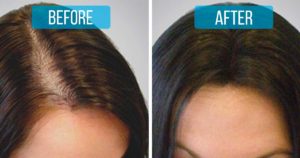Effluvium telogen is a type of temporary hair loss that usually occurs after stress, shock, or traumatic events. It usually occurs on top of the scalp.
Telogen effluvium is different from the permanent disorder of hair loss called alopecia areata. Large amounts of human hair may be removed, but it is often temporary, and the hair usually grows back.
In this section, we look at the causes, symptoms, diagnosis, and treatment of telogen effluent, including dietary changes that may help you Best Hair Transplant in Lahore.
What is Telogen Effluvium?
Man pulling hair from hair trash with effluvium telogen. The telogen tail is characterized by increased leakage or thinning of human hair. A person is described as having chronic telogen oxide if they have long periods of hair shedding for more than 6 months. Usually reversible telogen is reversible. A person with this condition does not lose all his hair, although he could be very thin.
Effluvium telogen is a form of hair loss which is characterized by hair or an increase in shedding of hair as a characteristic. It occurs more often in women and usually affects the hair cycle.
The hair cycle usually consists of three stages:
- Anagen or growth stage.
- Catagen or transitional phase.
- Telogen stage or relaxation.
Telogen effluvium is associated with telogen stage. Usually, 5 to 10 percent of a person’s hair is in the telogen stage at one time.
With telogen effluvium, the anagen phase reduces, meaning that fewer hairs enter into the next two stages. With this condition, about 30 percent of the hair follicles moves into the telogen phase, which means hair sedding occurs.
Signs
The main symptom of telogen effluvium is an increase in the amount of hair a person has sheds.
A person may notice that more hair than usual falls out when they are washing or brushing their hair. They may get more hair in the drain or on their cloth.
Reasons
- Businessman working hard with headache
- Heavy stress may cause telogen.
Some shocks can cause disturbance in the hair series, including:
Stress severe. Long stressful periods can be caused by effluvium telogen. Hair loss usually takes about 3 months after the stressful event.
Bad diet. Hair needs main nutrients including protein, iron, B-vitamins, and zinc to grow. The shortage of these nutrients may affect the quality and quantity of a person’s hair.
Loss of sudden weight. Weight loss or chronic calor restriction, such as in anorexia nervosa, can lose the hair.
Pregnancy and childbirth. During pregnancy, more hair in the growth phase is longer. Hormonal changes that occur 3 to 6 months after birth can cause hair loss. This is called post-partum telogen effluvium.
Menopause. Hormonal changes that occur during the menopause can cause telogen ha.
Certain drugs. Certain medications and recreational drugs can cause hair loss.
Basic Health Conditions. These include autoimmune disease, conditions that affect the thyroid gland, and alopecia areata.
Surgery. Depending on the type of procedure, length of stay in hospital, medication, and total nutrition status.
Metal Toxicity. Loss of toxic chemicals in metals can cause hair loss.
What are the options for natural hair?
There are a number of ways in which one can promote hair growth at home. Learn about the different methods here.
Treatment
Treatment for effluvium thermal depends on which the resulting hair loss. Once established and focused on the trigger, the hair cycle should normalize and the hair begins to grow back.
Treatment Options Include:
- address nutritional deficiencies through diet
- non-surgical hair replacement
- hormonal replacement therapy for people with menopause
- counseling support to manage stress or anxiety
A person should try to avoid chemical treatments or heat that could damage the hair. They should also avoid heat styling and heat treatment, such as the hair curling or stealing.
Nutritional Conditions Include:
Protein provides the building blocks for hair growth. Make sure that the diet includes a lot protein-rich foods, such as meat, eggs, fish, beans, grains, and nuts. The amino acid lysine may be particularly important for hair growth.
Iron deficiency may be linked to effovium telogen. Changes to the diet to include foods containing iron may help to reduce hair loss. These include red meat, liver, dark green leafy vegetables, beans and lentils. A supplement can be viewed for a short time and improve nutritional status.
For professional advice, a person can contact a Hair Aspire the Best Hair Transplant in Lahore.
 Bloggers Trend Keeping You Up To Date
Bloggers Trend Keeping You Up To Date



